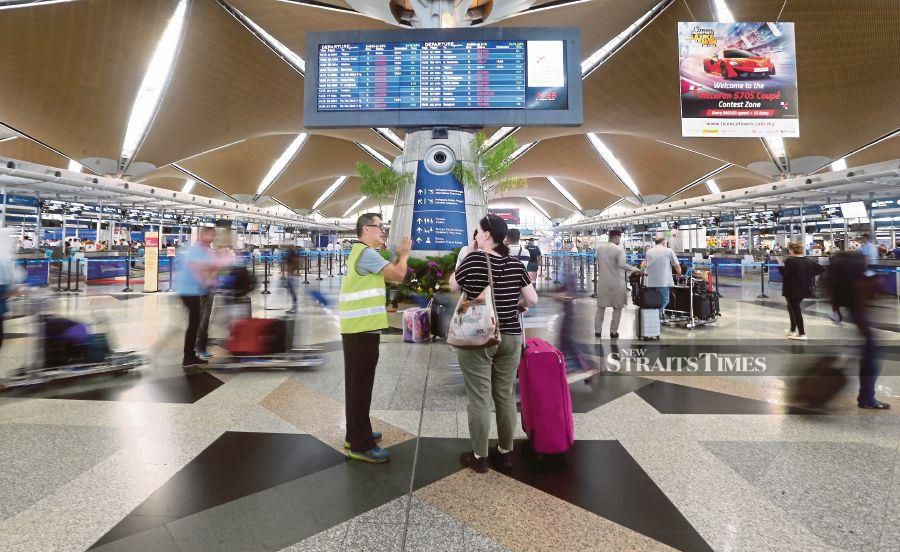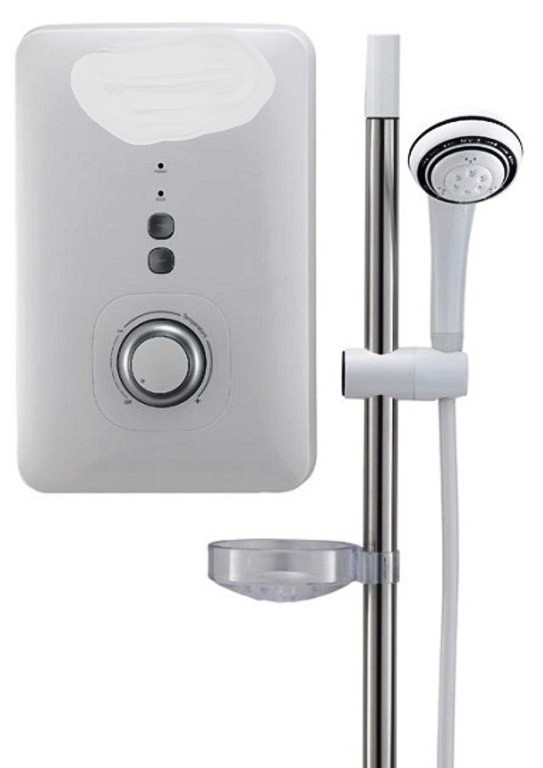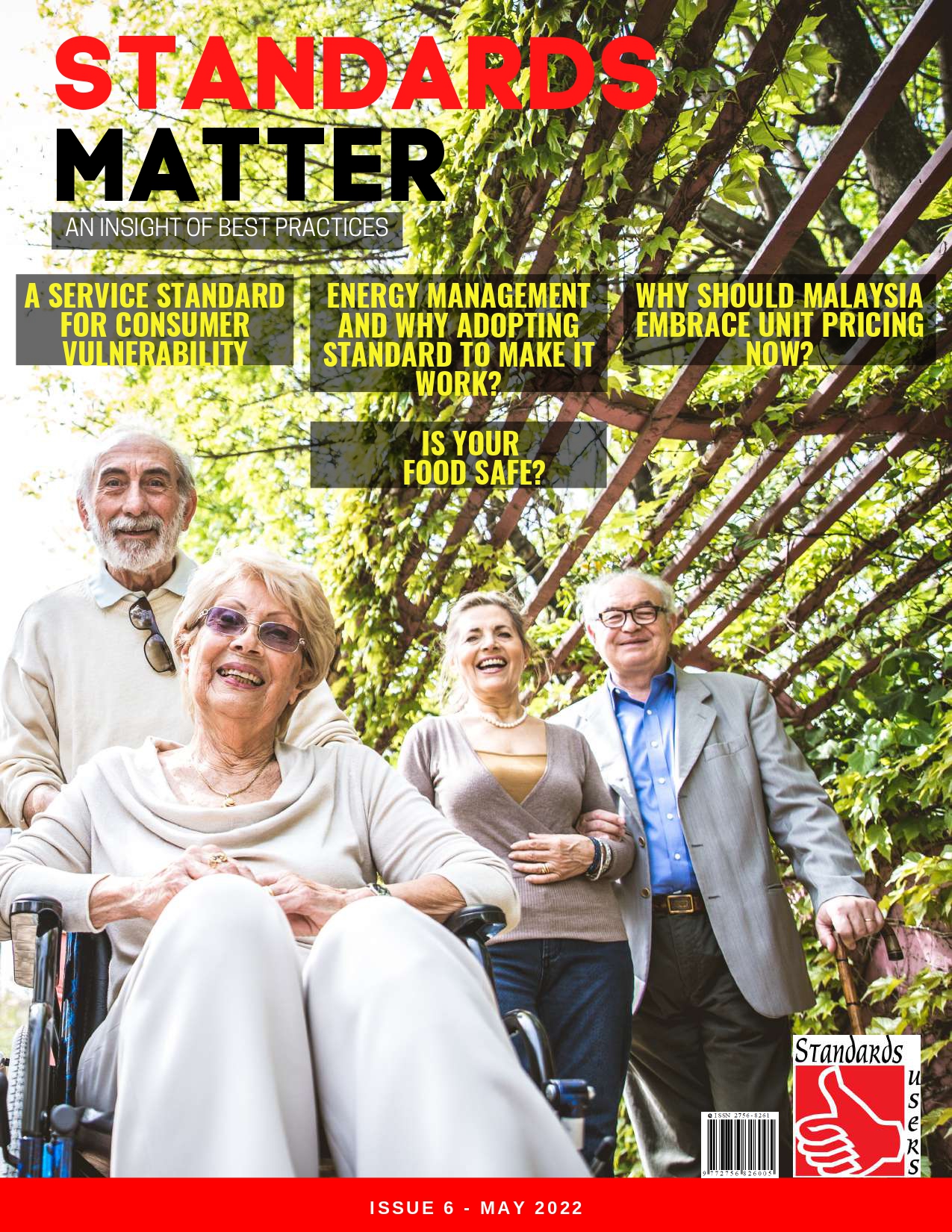- Details
- Written by Syikin
- Category: LETTER TO EDITOR
- Hits: 15094

New Strait Times, September 14, 2019 @ 11:15pm
AT least two dozen flights were delayed on Aug 21 when a systems disruption affected Kuala Lumpur International Airport (KLIA) and klia2, including its flight information display system, check-in counters, baggage handling systems and Wi-Fi. This should be a wake-up call for Malaysia Airports Holdings Bhd (MAHB). Based on the current global political climate, there has never been a more important time for airports to seriously reconsider their approach to cybersecurity and risk management. MAHB must oversee threats to the airport system and the management must further discuss it with the board and stakeholders. Risk management is important to gain a competitive advantage.
Through enhanced risk management, the board will gain a better understanding of how threats can impact its strategy. It is vital for MAHB to consider ISO 31000 Risk Management to identify, assess and control risks. Risk management ensures the highest possible level of safety during all airport activities and requires an in-depth risk analysis and incident analysis, as well as linking the two together to facilitate learning from incidents. Risk management will add value to MAHB and ensure continuous improvements. It improves performance, encourages innovation and supports the achievement of MAHB’s objectives. The risk management process involves the systematic application of policies, procedures and practices to the process of communicating and consulting, establishing the context and assessing, treating and monitoring risk. Risk management has played a strong supporting role at the board level.
Read more: Facing disruptions: Risk management crucial for MAHB
- Details
- Written by Syikin
- Category: LETTER TO EDITOR
- Hits: 13612
 14 October 2016
14 October 2016
Businesses aspiring to build household names for their products and services subscribe to a set of standards or guidelines which help differentiate their product in market and consistently produce a widely expected level of quality (safety, performance, durability, social norms and environmental well-being). Labelling, certification and test results are among the ways business can show compliance with relevant standards.
In 2011, a famous dried meat producer in Malaysia suffered a severe drop in sales when banned and carcinogenic chemicals were purported to be used in their product. According to the Star (19 February 2015) the Ministry of Health ordered the company to take its dried meat slices off the shelves after tests showed dangerous levels of sodium nitrate.
The International Agency for the Research of Cancer (IARC) has reviewed ingested nitrates and nitrites and classified them as probably carcinogenic (cancer causing) to humans and it could pose risks to those with existing heart conditions.
Dried meat is widely consumed during the lunar New Year in Malaysia. But when concerns about the chemical surfaced, there was almost no sale - people just didn’t buy them that year. The owner and management wanted to turn around the company.
Soon products sold by the company were labelled certified ISO 22000:2005 - food safety management system standard showing how safety and health is taken into consideration when the dried meat is made. The bottom line – sales picked up and trust among their customers were rekindled.
Read more: PUTTING THE TRUST IN CONSUMER PROTECTION THROUGH STANDARDS?
- Details
- Written by Syikin
- Category: LETTER TO EDITOR
- Hits: 12399
04/JUL/2016
The general public has presumably been on their toes lately due to multiple sources of concerns to their safety when driving their cars. Reports of Honda having no stocks of parts to correct the potentially fatal airbag installation in their fleet and several other brands recalling cars due to the same problems are plaguing the media and causing distress to car owners.
It looks like Malaysians are stuck between a rock and hard place when it comes to airbags – damned if you do and damned if you don’t. We have been down this road many times.
What advice do we give drivers of cars with these kinds of airbags? Some say make sure no one sits at the passenger sit next to the driver! What about the driver? Should she or he wear a helmet and a bullet proof vest?
The Malaysian Association of Standards Users monitors consumer product recalls and also complaints. Complaints and recalls related to passenger cars never fail to overwhelm us. Several thousands of car complaints are received annually totaling millions of ringgit of potential loss to consumers.
These complaints are received by the National Consumer Complaints Centre (NCCC). Most complaints are related to new cars not performing as intended and brand owners and service centres alike fail to rectify these problems. In addition to poor quality services consumers in Malaysia put up with unsafe vehicles which are not taken off the road in a timely manner.
Standards Users is utterly disappointed with both regulators and car manufacturers for the failure to protect the general public from unsafe vehicles. We seek to know the one authority in Malaysia who can enforce laws that guarantees only safe vehicles are placed on the roads and if at all safety related recalls are notified, the general public responds accordingly to get their problems fixed promptly without additional problems thereafter.
Read more: CARS, COMPLAINTS AND CONSUMERS - DAMNED IF YOU DO AND DAMNED IF YOU DON'T
- Details
- Written by Syikin
- Category: LETTER TO EDITOR
- Hits: 13890

26/AUG/2016
For about ten years now there has been an average of one death every two years in Malaysia due to electrocution from water heaters, the most recent one in July this year 2016.
1. December 2008 – Penang
2. June 2011 – Selangor
3. October 2011 – Batu Kawa, Sarawak – 48 yr old man
4. December 2011 – Penang
5. September 2013- Kuala Lumpur ; Japanese couple
6. August 2014 – Johor; 27-year-old pharmacist
7. July 2016 - Negeri Sembilan; Mass Communication University Student
Despite the number of deaths, the Malaysian regulator has not been forthcoming with the outcome of investigation into the incidents. It makes our work as civil society organisation very difficult to engage the general public on safe use of water heaters. The investigations (if any) are not transparent and we have no way of knowing who or what was responsible for the loss of lives – both citizens and foreigners alike.
Often the scapegoat for the businesses and regulators alike is that consumers favor cheap brands and installations. But several deaths are associated with well-known brands of electric water heaters.
Energy Commission may have advertised on papers and websites about safety measures for water heaters. But this kind of response to a potentially fatal problem with electric water heaters shows that there is no urgency in getting to the root of the problem and implement long term solutions.
- Details
- Written by Syikin
- Category: LETTER TO EDITOR
- Hits: 13209
10/JUL/2016
I have heard of many accidents involving express busses during the last week’s festive break. Every time I feel for the victims of accidents which could have been avoided with stringent maintenance protocol and improved enforcement by public transport regulators such as SPAD.
My staff was in a bus which rammed 10 cars on the north south highway yesterday (Sunday 10 July 2016). Media reports say that there was a brake failure. Video of the bus appearing to be driven fast and ramming into vehicles has gone viral. The reality of how serious is the problem with express bus services in Malaysia has hit home when my staff was involved. Victims can be the sole bread winner of a family, a mother or father with young kids who need the parents. How do we compensate for such losses and what do we say to families who experience loss of a loved one or active and productive citizen of the Malaysian workforce!
Again, as the president of a consumer organisation and who have been actively monitoring public transport quality of service I am truly and utterly disappointed with both the operators and regulators for their inaction in improving safety of the very lives of people who they depend on for their own livelihood and business sustainability.
Regulators such as SPAD MUST come down hard on poor service quality and weed out all errant bus operators though active surveillance and rapid response to complaints. SPAD should also employ means of receiving complaints – if possible real time. Speed records should be captured the minute speed limits are breached?
We hope the UNECE standards for busses are widely enforced especially on anchorage, superstructure and seat belts for passengers? We need clear, transparent and efficient mechanism to compensate passengers who suffer losses in terms of loss of lives, disabilities, loss of working time and delay accordingly?
Close to 2000 people are killed daily globally in road accidents and in Malaysia death rates are 23.6/100000 in 2015 among the highest in Southeast Asia. According to the Minister of Transport statistics showed that 6,706 lives were lost in about 489,600 road accidents in 2015. This is 32 deaths more than the figure recorded in 2014.
We need to put a stop to the unnecessary loss of lives and limbs with more responsible and accountable public transport operators and improved enforcement.
It is my sincere hope that the general public as consumers assert their rights to safer and accountable public transport system by choosing express bus operators with impeccable safety performance. Relevant government agencies should respect consumer rights to fair and transparent information to help consumer choose the right service providers.
Professor Datuk Dr. Marimuthu Nadason
President
Malaysian Association of Standards Users






